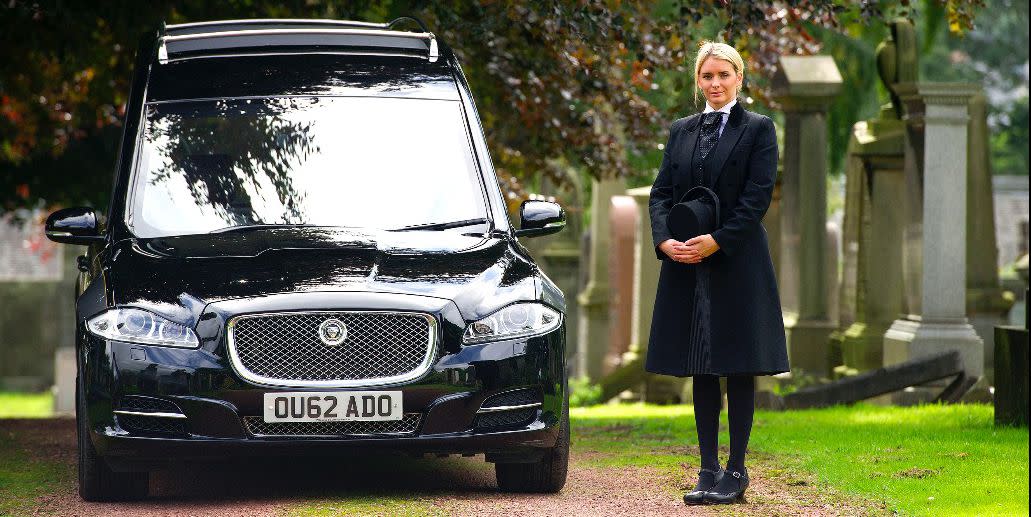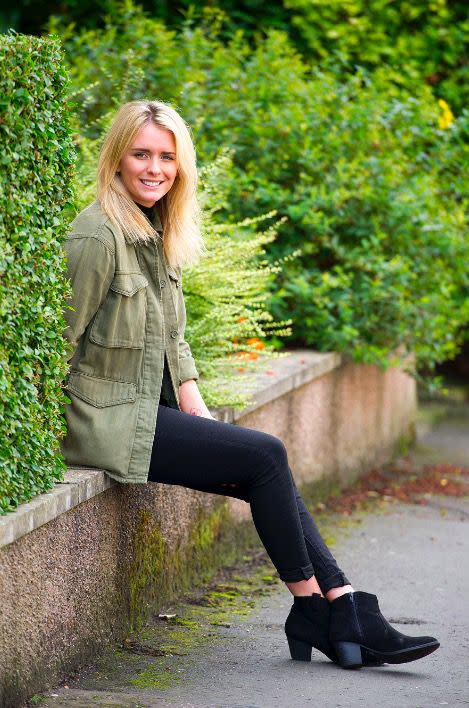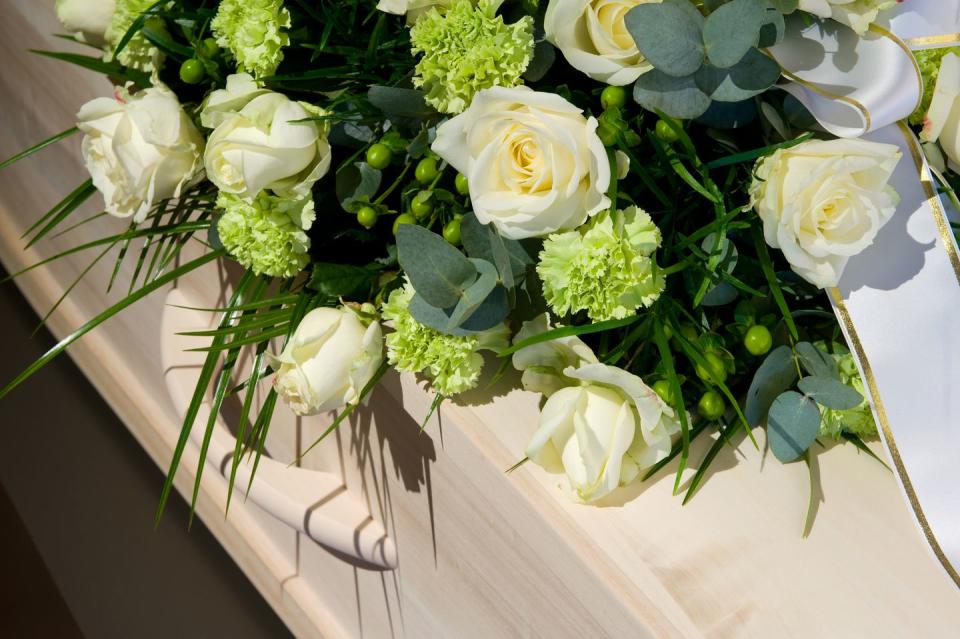'I'm a twentysomething female funeral director, and I love my job'

When 28-year-old Raegan meets strangers, she lies about what she does for work because people wouldn't believe the truth. She's a female funeral director for the Co-op in Midlothian, Scotland, and it's her job to take the deceased into her care and grant the requests of their friends and family ahead of the funeral, as well as on the day itself. Here's why she loves her job.

"I went to college to study beauty after I left school, but quickly realised that it wasn’t what I wanted to do. I did some research into embalming – the art and science of presenting and preserving the deceased– and liked the idea of pursuing it because I could see the similarity between that and my experience with makeup. I started training after completing my beauty course, and learned how to care for the deceased, do their hair and makeup, dress them in their own clothes or gown and place them in their coffin.
"After finishing the course, it took a whole year of rejection from funeral directors before I landed a job with the Co-op. Being an 18-year-old woman trying to get into an industry that was pretty closed off was tough, but I was persistent. I eventually got my first role as a funeral arranger, before two years later, landing my current role as a funeral director.
"My day-to-day job essentially involves arranging funerals from start to finish for our clients. I’m the one who puts everything in place ahead of the service - I book the day and time of the funeral, I book the officiant, I arrange the transport, the wake, an order of service, flowers, a headstone - anything they may want. I’ll aim to ‘hold the client’s hand’ all the way through the process and beyond.
"But it’s not just putting everything in place. I’m there for the families in the time between arranging the funeral and the day itself, to be present for the people grieving, and to oversee everything and ensure all goes to plan. I travel in the hearse and look after the client at the church, crematorium or cemetery.
"At the beginning of the whole process, I’m also the one who attends the house, care home, hospital or elsewhere once the death has been verified and bring the deceased into our care. From there, they are taken to our own specialist private mortuary, where we have the facilities to care for up to 100 people. It is within this environment we respectfully wash, moisturise and dress each individual in a clean white gown whilst we wait to arrange the funeral with the family. At the earliest opportunity, the deceased is transferred to the funeral home.

"During the arrangements with our clients, as well as discussing their choices, I will always ask them if they’d like their loved one embalmed. We also consider other aspects such as if they’d like to bring in clothes, or viewings. We encourage families to visit their loved ones after they’ve been prepared and embalmed, as this gives a much better lasting memory. We also have a private room if they want to dress their loved ones, or wash them, which is key in some religions.
"We offer a 24 hour service, so we are there for our clients at all times, and attend houses to pick up deceased day or night. I’ve been called out to houses in the night, and had to leave Christmas dinner to attend to someone, but that’s what the job is. It’s just one of my Christmas Days, whereas the person’s family are reminded of it every year.
"Being on call doesn’t bother me because I love my job. I never dread going to work, and there’s nothing better than doing a job that actually helps people and takes a burden away from someone who is grieving. People don’t realise how much goes in to arranging a funeral and how much you have to do when someone dies, so if I’m able to make it that little bit easier for them, it’s so rewarding. I see it as the last thing I’m able to do for someone – get them dressed for the last time, do their hair for the last time.

"Services for children and babies are especially sad and it’s hard when you see anyone upset, but I have to focus and remember that I’m there for the family and friends. I’ve got to be the one who makes it easier for them; I’m not the one who’s grieving.
The most difficult part about my job is when I have to deal with a death within my own family, friends or someone I know. It’s nice being able to take some of the worry away but it’s harder because I’m more emotionally attached. The experience does aid me in understanding what our clients go through at a time of grief, and helps me to be more empathetic toward each individual.
"I never dread going to work, and there’s nothing better than doing a job that actually helps people"
"My family are all really proud, accepting and supportive of what I do, although it is hard when I meet someone new and they ask me about my job. I often just say that I work at the bank - it’s a lot easier! My friends’ favourite game when we’re out is to ask people, ‘Guess what she does!’.
"For me, I just really want to help people. My job is to make life easier for people when they most need it. For some people, funerals are such a taboo thing, but I’m there to reassure them in their time of need, ‘It’s all taken care of, you don’t need to worry now’. Just someone saying ‘Thanks’ or ‘You’ve made my life easier’ at the end of a funeral, that’s amazing for us. That’s all we want, just to make someone’s hard time a little bit more bearable."
Raegan is a funeral director for Co-op Funeralcare. You can find out more about careers with them here.
('You Might Also Like',)

